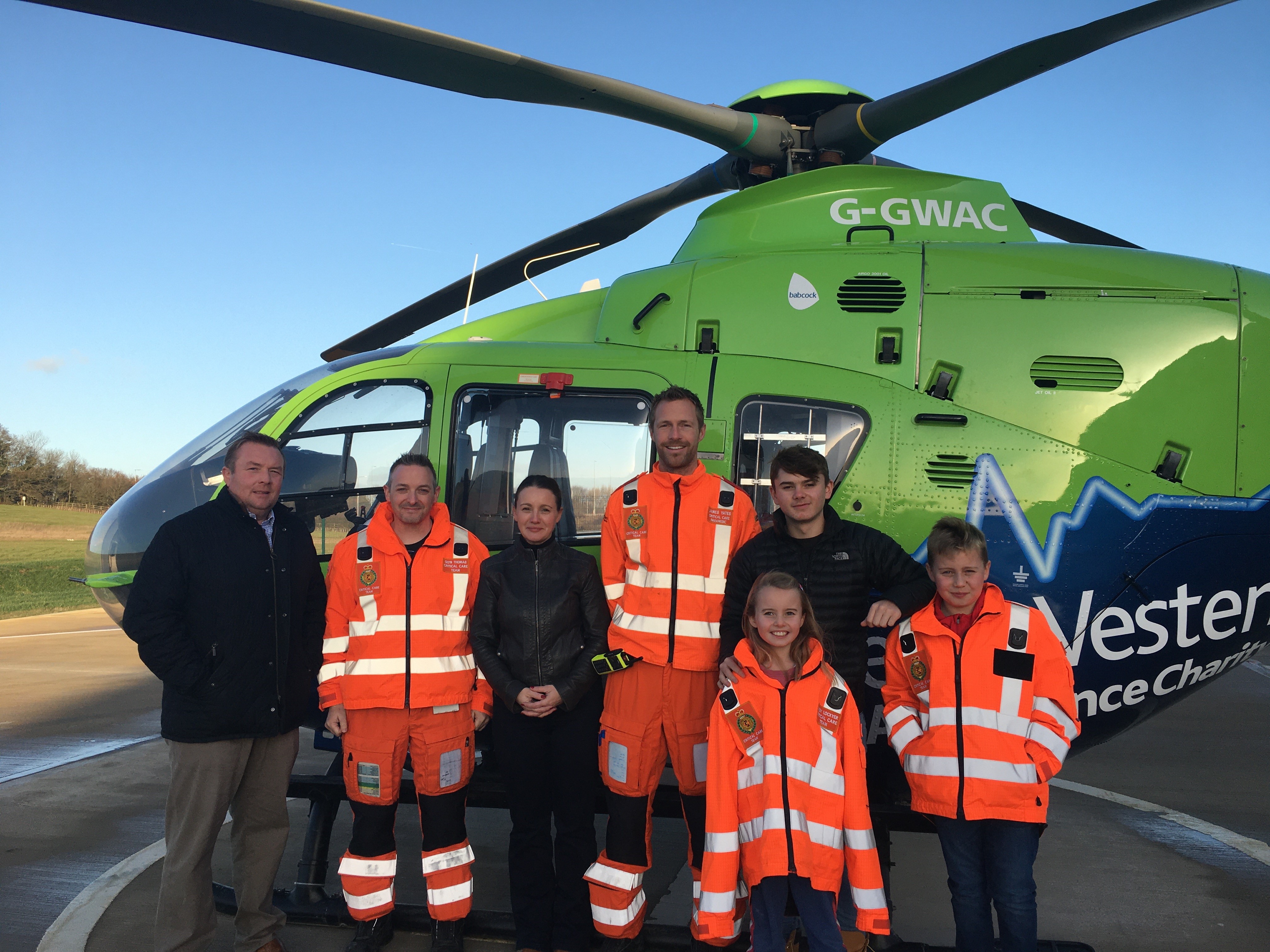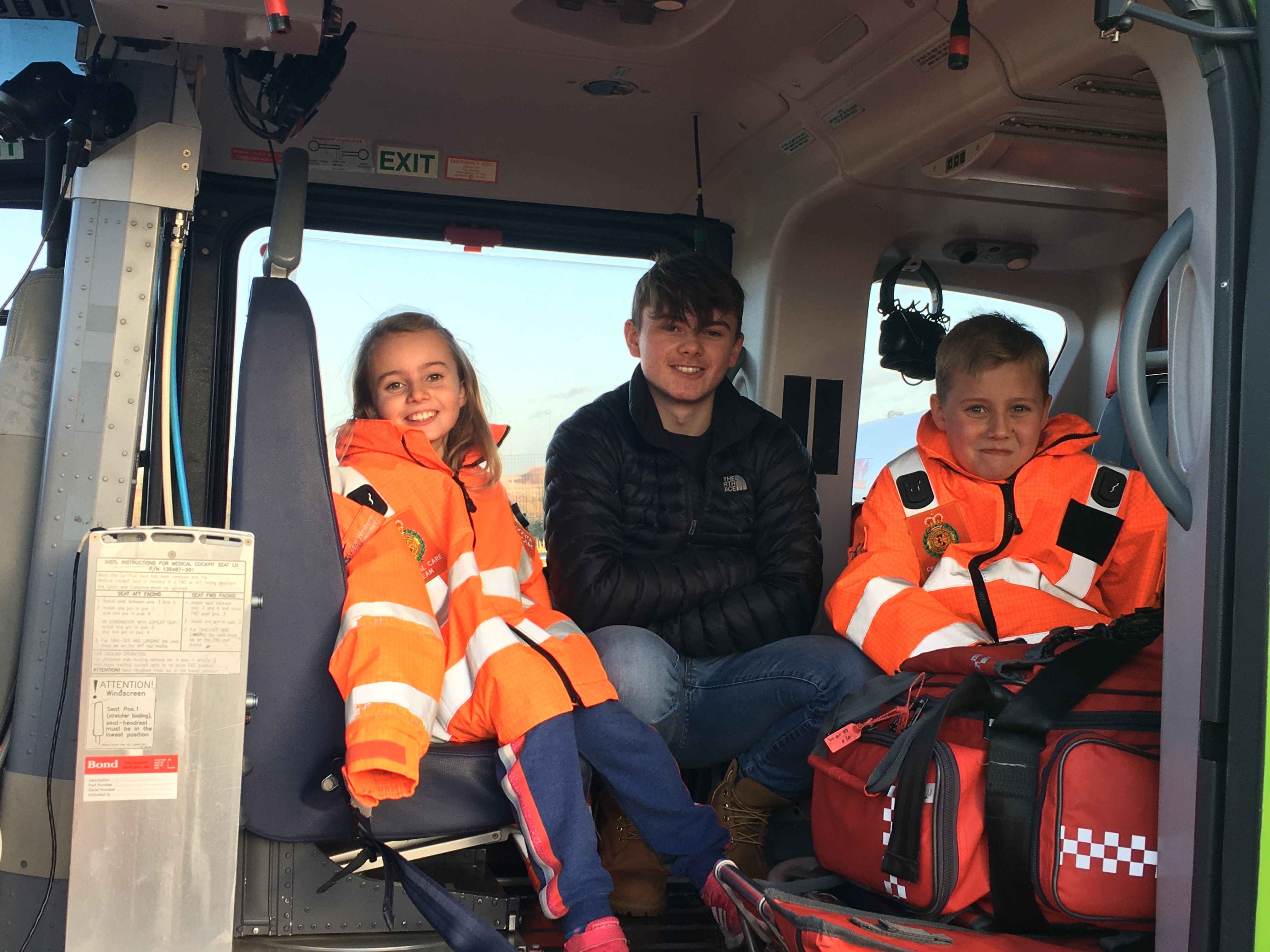Local air ambulance supports O negative appeal after lifesaving transfusion
In June 2019, GWAAC’s Critical Care Team were called to Ollie after he was involved in a serious road traffic collision. Ollie had been out on his bike, when he cycled out of a side pathway and collided with a van, causing him significant injuries.
 The impact of the collision had resulted in heavy internal bleeding in Ollie’s abdomen and severe damage to his liver. Having lost around 6 pints of blood, Ollie was in critical need of a blood transfusion, and fast.
The impact of the collision had resulted in heavy internal bleeding in Ollie’s abdomen and severe damage to his liver. Having lost around 6 pints of blood, Ollie was in critical need of a blood transfusion, and fast.
Unlike road ambulances, GWAAC’s Critical Care Team carry two units of O Negative blood and fresh frozen plasma. In situations like this, where every minute counts, administering blood and plasma on scene can stabilize the patient long enough to get them to hospital.
O negative is used by GWAAC because it is an incredibly valuable blood type that can be given to almost anyone. This is essential when saving people’s lives, as there is not enough time at the scene of an incident to test someone’s blood type.
Having treated Ollie on scene, they knew they had to get him to hospital quickly if he was to have any chance of survival. On route to Southmead Major Trauma Centre, GWAAC Critical Care Doctor Tim recalls:
“On our way in Ollie was extremely unstable, he’d had all the blood products we carry and I remember thinking “We’ve run out blood, what are we going to do now?’’ Looking out of the window, I realised we were just outside Southmead Hospital.
 “We gave Ollie all of the blood and plasma we carry; without them I have no doubt he’d have died before we could have got him to hospital. His life was saved because of those blood donors and the kind monetary donations of those who fund us to carry blood.’’
“We gave Ollie all of the blood and plasma we carry; without them I have no doubt he’d have died before we could have got him to hospital. His life was saved because of those blood donors and the kind monetary donations of those who fund us to carry blood.’’
Only 8% of the population are O negative but it makes up 14% of the blood used by hospitals. A NHSBT spokesperson commented: “Demand for O negative is always high and collecting enough is a constant challenge. We need 13,500 new people with O negative blood to start donating this year. If you have O negative blood, please speak to your family - there’s a one in three chance your close relatives will share your important blood type.”
If you would like to become a blood donor, you can register to donate today.
As a charity, GWAAC receives no day-to-day funding from the Government or National Lottery and needs to raise over £4 million each year to stay operational. This means they rely on the generosity of donors and supporters to keep them flying.
Thanks to the blood donors, and the wider teams that GWAAC are lucky to work with, Ollie has now gone on to make a full recovery. Ollie said of the GWAAC: “I will always look to support this charity. From experience you really never know when you may need them – thank you so much.’’
Find out how you can support your local air ambulance.
Pictures
- Ollie with family and the air ambulance crew
- Ollie with his siblings
